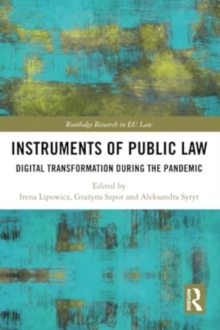
The Judge and the Proportionate Use of Discretion : A Comparative Administrative Law Study PDF
Edited by Sofia Ranchordas, Boudewijn de Waard
Part of the Routledge Research in EU Law series
Description
This book examines different legal systems and analyses how the judge in each of them performs a meaningful review of the proportional use of discretionary powers by public bodies.
Although the proportionality test is not equally deep-rooted in the literature and case-law of France, Germany, the Netherlands and the United Kingdom, this principle has assumed an increasing importance partly due to the influence of the European Court of Justice and European Court of Human Rights. In the United States, different standards of judicial review are applied to review 'arbitrary and capricious' agency discretion. However, do US judges achieve a similar result to the proportionality or reasonableness test?
Drawing together a selection of key experts in the field, this book analyses the principle of proportionality in the judicial review of administrative decisions from different perspectives. The principle is first examined in the context of recent developments in the literature and case-law, including the inevitable EU influence, then light shall be shed on the meaning of this principle in the specific case-law of the European Court of Justice and European Court of Human Rights. Finally, the authors go on to explore the ways in which US judges consciously 'sanction' the 'disproportionate' and/or unreasonable' use of agency discretion. In the legal systems where the proportionality test plays a very limited role, Ranchordas and de Waard also try to clarify why this is the case and look at what alternative solutions have been found.
This book will be of great interest to scholars of public and administrative law, and EU law.
Information
-
Download - Immediately Available
- Format:PDF
- Pages:224 pages
- Publisher:Taylor & Francis
- Publication Date:12/06/2015
- Category:
- ISBN:9781317606123
Information
-
Download - Immediately Available
- Format:PDF
- Pages:224 pages
- Publisher:Taylor & Francis
- Publication Date:12/06/2015
- Category:
- ISBN:9781317606123










